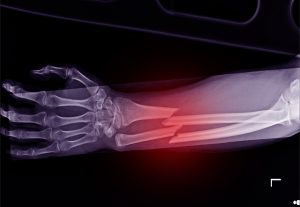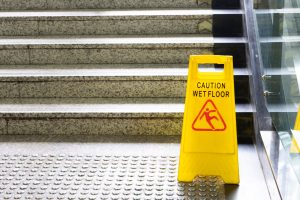By Danielle Coleman. Last Updated 16th April 2024. Have you had an accident at work and are wondering what your rights are? Would you like to know whether you can claim? In this article, we will explain what your rights are and show you how much compensation you may receive. Furthermore, we will explain the type of accidents in the workplace that you could claim for, how they could happen as well as what the benefits of No Win No Fee lawyers include.
After an accident at work, you can be unnerved about your injury. Your quality of life can change and all the things you did before can become harder to do, like work, and physical and social activities. This may lead you to claim for your injury.
You can contact our advisors who are well-versed in offering free and relevant legal advice. They can help determine whether your case is valid and could even connect you to our panel of expert solicitors who can offer you a No Win No Fee arrangement for your claim. To see if you can begin the process today, get in touch with our advisors by:
- Calling 020 8050 2736
- Using our live chat feature
- Completing our online claim form

Choose A Section
- I Had An Accident At Work – What Are My Rights?
- Determining Work Accident Compensation
- How Could Accidents Happen In The Workplace?
- What Is The Legal Definition Of A No Win No Fee Agreement?
- More Information – What Are My Rights After I Had An Accident At Work?
I Had An Accident At Work – What Are My Rights?
Your employer has a legal responsibility to provide you with a practically safe working environment. This means that:
- The area you work in should be made as safe as reasonably practicable
- The tasks that you are asked to perform should either be safe, or you should be provided with training or materials that can help keep you safe
- They have a responsibility to address any legitimate safety concerns you raise with them
This responsibility is known as a duty of care – it is primarily described in the Health and Safety at Work etc. Act 1974
If you are injured because your employer failed to fulfil their duty of care, you have a right to take action against them, or the organisation you work for, through a personal injury claim.
Because this is a right you have by law, your employer or the organisation you work for cannot take action against you for making an honest or legitimate claim. Employees making accident at work claims have protections under employment law.
If you’ve been injured in an accident at work, please reach out to a member of our team for information on how to take action for being injured in an accident at work and what your rights are under UK law.
What Rights Do I Have To Claim As An Agency Worker?
According to the Health and Safety Executive (HSE), an agency worker is an individual supplied to a business through an employment agency. The HSE regulates workplace health and safety.
While you are at work, you are owed the same duty of care we discussed above. If you suffer an injury while carrying out your work duties due to a breach of this duty, you could be entitled to accident at work compensation. However, the claim could be made against either the business or the agency.
Before you start work, the agency must liaise with the business to identify anything that could result in injury in the workplace. The likelihood of harm and actions to eliminate or control these risks must also be assessed. The agency is expected to communicate with the business to ensure that health and safety is effectively managed. If their failure to do this resulted in a workplace injury, you might be able to claim against your employment agency.
However, the business is responsible for daily health and safety during that particular work assignment. They direct the work and might also control the premises. If you suffer a workplace injury because the business failed to take reasonably practicable steps to ensure your health, safety or welfare, then you might be eligible to claim against them.
Speak to an advisor to discuss when you could make an accident at work claim as an agency worker. They can help assess the situation that resulted in your injuries and advise on who your claim could be filed against.
How Do I Make An Accident At Work Claim As A Zero Hour Employee?
If you are employed under a zero hour contract, you may wonder whether you have valid grounds to claim following an injury at work. When you are employed on a zero-hour contract, your work is considered casual; your employer does not need to give you a minimum of hours, and you don’t have to accept any work that is offered.
However, your employer owes you the same duty of care as they owe to any other employee regarding your health and safety. If you suffer an injury in an accident at work because of a breach of this duty of care, you have the same rights to launch a claim as another employee, such as one on a full-time contract.
Talk to an advisor to learn more about claiming for injuries sustained as a zero-hours employee. If you satisfy the eligibility requirements, an advisor can help you start an accident at work claim today.
Can I Claim Compensation For A Temporary Worker Accident?
Temporary workers are typically recruited directly by the business during a busy period. This can include, seasonal employees, self-employed workers or a contractor. Other types of workers may also be classified as temporary workers.
However, if you are a temporary staff member, you are owed the same duty of care as any other employee. Should you suffer an injury because of a breach in this, you have the same rights to seek compensation as any other employee would.
One of our advisors can discuss eligibility for claiming for injuries suffered at work while on a fixed-term contract. Use the contact details at the top of the page to get in touch.
Injury At Work Rights – What You Might Not Know
You may be entitled to Statutory Sick Pay (SSP) following your accident. This could apply to you whether you are in contract as a full-time employee or employed on a zero hour basis.
Your employer does not decide whether or not you should receive it. If you have received a medical recommendation to not work, you can present this to your employer when requesting sick pay if you meet the eligibility criteria listed on the site.
A refusal to pay SSP can be a violation of your employment rights. If you’re seeking a more detailed answer to the question, ‘I had an accident at work, what are my rights?’, our advisers can give you more information about your injury at work rights and how to take action through accident at work claims.
How Common Are Work Accidents?
According to the Health and Safety Executive (HSE), employers reported under The Reporting of Injuries, Diseases and Dangerous Occurrences Regulations 2013 (RIDDOR) that in 2022/23, employees suffered 60,645 non-fatal reportable injuries with 42,920 necessitating a 7-day absence from work. The most common sites of injury were to the upper limbs with 22,656 non-fatal injuries including the hand, wrist, fingers and thumbs.
Determining Work Accident Compensation
There are two heads of awards: one covering the pain and suffering of your injury, otherwise known as general damages, and special damages which cover the financial costs accrued due to your injury.
The Judicial College Guidelines (JCG) publishes the potential brackets of compensation for general damages, separating them according to the seriousness and sort of injury. Those responsible for valuing your claim, such as a solicitor or other legal professional, may refer to these brackets to help them.
Please see the table below for examples of possible compensation figures. The top row shows how compensation could be awarded for multiple injuries and special damages; the remaining rows are from the JCG’s 17th edition. As all accident at work claims are different, the table is only for your guidance.
| Injury | Severity | Notes | Compensation Guideline |
|---|---|---|---|
| Multiple Severe Injuries and Special Damages | Very Severe | Claimants could be compensated for more than one severe injury and related costs, including lost wages and care expenses. | Up to £1,000,000+ |
| Brain Damage | Very Severe | Nursing care is required on a full time basis to cope with severe cognitive and physical disabilities. | £344,150 to £493,000 |
| Neck Injuries | Severe (i) | These injuries are associated with permanent spastic quadriparesis or incomplete paraplegia. They may also cause little or no neck movement and severe headaches. | In the region of £181,020 |
| Leg Injuries | Severe (ii) | These injuries are very serious and cause permanent mobility problems, take years to heal and need extensive treatment. | £66,920 to £109,290 |
| Hand Injuries | Serious Damage to Both | The claimant suffers with a significant function loss and permanent cosmetic disability due to their injuries. | £68,070 to £103,200 |
| Knee Injuries | Severe (ii) | Movement limitations, constant and permanent pain and impaired agility occur due to a leg fracture extending into the knee joint. | £63,610 to £85,100 |
| Foot Injuries | Serious | The claimant suffers continuing pain from traumatic arthritis or the risk of arthritis in the future, prolonged treatment and a fusion surgery risk. | £30,500 to £47,840 |
| Ankle Injuries | Moderate | Less serious disabilities, such as difficulty standing and walking for long periods of time from fractures and ligamentous tears. | £16,770 to £32,450 |
| Shoulder Injuries | Serious | Pain in the shoulder and neck, aching elbow, sensory symptoms and grip weakness from a shoulder dislocation with damage to the lower brachial plexus. | £15,580 to £23,430 |
| Cheekbone Fractures | Serious | These serious fractures have lasting consequences, such as paraesthesia and some element of disfigurement and require surgery. | £12,450 to £19,260 |
Additionally, you could receive compensation for special damages. This includes, for example:
- Domestic care you had to pay for, such as cleaning and cooking, while you recovered.
- Travel to and from medical appointments.
- Loss of income and future earnings.
- Medical expenses, such as prescription costs.
- Nursing care.
Contact our advisors for more information if you have had an accident at work and want to know what your rights are. Also, we can provide more clarification around personal injury compensation today.
How Could Accidents Happen In The Workplace?
There are various ways workplace accidents could occur. These include:
- Fall from a height. For example, as part of your duties, you may need to go up a ladder, but the ladder wasn’t inspected recently. This resulted in a fault in a high rung going unnoticed. As a result, you fell and sustained multiple injuries, including a brain injury and damage to your spinal cord.
- Slips, trips and falls. All workplaces should ensure good housekeeping as part of their duty of care. This includes having policies in place to deal with wet floors, such as putting up a wet floor sign. If the floor is wet and there is not a wet floor sign in place, you could slip and sustain injuries, such as a broken arm.
- Inadequate training. You should be given all training to safely carry out your work duties for free. For example, if you are expected to move loads, you should be provided with manual handling training. Failure to do so could result in a back injury. For example, by bending or reaching for an object that is too far away.
- Lack of personal protective equipment (PPE). If you need PPE to safely carry out your work duties, your employer needs to provide it free of charge as part of their duty of care. For example, if you work with a saw that creates a lot of airborne debris, your employer should provide you with safety goggles to prevent an eye injury.
How To Prove Your Accident At Work Claim
It is very important to remember that you can only claim if an employer’s negligence caused your injury.
To prove negligence, evidence is needed to support your case. Instructing a solicitor can make this process feel easier as they can offer guidance on what evidence can be gathered, for example:
- Medical records – Seek out immediate medical attention. The document created by the medical professional can help clarify the extent of your injuries.
- Accident at work book – By law, workplaces with 10 or more employees are required to have an accident at work book. The book can help to provide a timely record of the incident. A colleague can fill it in on your behalf if you are indisposed.
- Photographs – Pictures can help to show the injury and accident site.
- CCTV footage – Ask your employer for the CCTV and collect footage from your colleagues too, where possible.
- Get legal advice – We encourage you to seek out legal advice on how to make a claim after an accident at work.
If you would like to discuss, ‘I had an accident at work, what are my rights?’ or what evidence you could submit if you would like to launch a claim, talk to a member of our advisory team.
What Is The Legal Definition Of A No Win No Fee Agreement?
A No Win No Fee agreement is a common umbrella term that can refer to a Conditional Fee Agreement (CFA). Our panel of expert solicitors typically operate under a CFA, which can be beneficial when making a personal injury claim.
A CFA can help when claiming as it can give you peace of mind. It requires you to pay no solicitor fee immediately, and no solicitor fee at all if your claim is unsuccessful. Your CFA lawyer will only take payment through a success fee if your claim succeeds. A success fee is a percentage of your compensation that is legally capped and is taken to cover your lawyer’s legal fees.
Get Advice On “What Are My Rights After I Had An Accident At Work?”
For free legal advice on your accident at work and what your rights are moving forward, speak to our advisors today. They may be able to put you in touch with our panel of No Win No Fee solicitors. Contact us by:
- Calling us on 020 8050 2736
- Using our live chat feature
- Completing our online claim form
More Information – What Are My Rights After I Had An Accident At Work?
Additional guides on claiming for workplace injuries:
- Guidance on how long you have to claim after an accident at work.
- Details about claiming if you are injured by broken equipment at work.
- Advice on how to file a compensation claim for a workplace injury.
And, we have provided some useful external links too:
- Information about different types of employment contracts and your employer’s responsibilities from the government.
- Guidance on health and safety for workers from the HSE.
- Details about taking sick leave from the government.
Contact our advisors today if you would like more information on your accident at work and what your rights are in regards to claiming.
Publisher Ruth Vaughn
Writer Jack Edwards





